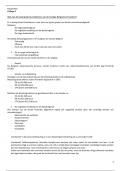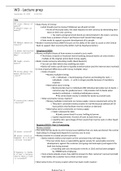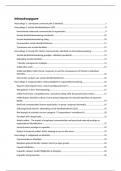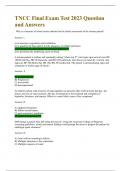Exam (elaborations)
USMLE: THE CONCEPT OF BIOCHEMISTRY 2024/2025 (TOP 100%)
- Course
- Institution
USMLE: THE CONCEPT OF BIOCHEMISTRY 2024/2025 (TOP 100%) Understanding Biochemistry in the USMLE: An In-Depth Overview Biochemistry is a cornerstone of the United States Medical Licensing Examination (USMLE) and plays a critical role in understanding the molecular and cellular processes underlyi...
[Show more]












